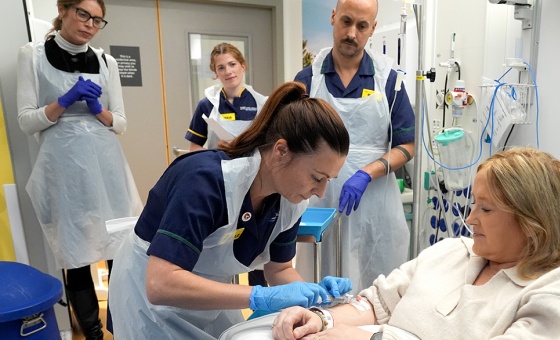This is the last article you can read this month
You can read more article this month
You can read more articles this month
Sorry your limit is up for this month
Reset on:
Please help support the Morning Star by subscribing here
PROTESTERS gathered outside the Central Family Court in London today after research highlighted the “devastating” impact of court orders on mothers and children fleeing domestic violence and abuse.
The research by See, Hear, Empower, Respond, Act (Shera) director Dr Elizabeth Dalgarno revealed on Tuesday that 43 out of 45 violent fathers in cases it had looked at had been given child contact and/or residence despite some of them having criminal convictions for domestic violence or child abuse.
Of the mothers, 39 had been accused in court of a disputed concept known as parental alienation, which has been cited as a factor in the self-inflicted deaths of women after family courts allowed fathers accused of abuse to apply for contact.
Dr Dalgarno described the concept — which refers to a child of a broken relationship supposedly being taught by one parent to hate the other — as a “handy tool for abusers” and said that its acceptance by courts is a “national scandal.”
The protest was organised by the Support not Separation (SNS) campaign coalition, which has been organising monthly pickets outside courts for seven years.
SNS said in a statement: “Every week, two to three women, many of them mothers, are murdered by a partner or ex-partner.
“Terrified children are forced to have contact or even live with abusive fathers or into largely privatised foster care or children’s homes making money from trauma.”
The coalition is calling for the abolishment of the “presumption of contact” with fathers, regardless of their violence, an end to the use of parental alienation assertions in family court cases, protection of domestic violence victims from perpetrators and opening the family courts to public scrutiny.
The Ministry of Justice said that improvements have been made to the family court system to protect domestic abuse victims, such as preventing cross-examination by abusers, expanding legal aid and allowing them to give evidence behind protective screens or by video link.










